Fresh Produce News
UK-headquartered fruit supplier is set to take new brand Amorita further afield with opening of Dubai operations

Allfresch, UK-based fruit supplier, is expanding into the Middle East markets with the opening of a new Dubai office.
The new facility will be headed up by Nick Evangelopoulos, former general manager of Yalda Trading. He previously spent seven years working for Chiquita as operations manager for the Middle East.
Allfresch is currently focusing on the development and expansion of its new brand, Amorita, which launched at the start of this year. It is featured on green bananas from Ecuador and Mexico, and limes from Mexico. The Shropshire-headquartered company’s primary markets remain the UK and Europe, but the opening of the Dubai office is part of its growth further afield.
Allfresch subsidiaries include Exotifruit, Frubanco, Fruesh, Allfresch Logistics and Summerseeds.
Ireland’s leading cooked meats company, Greene Farm Foods, has teamed up with Macfarlane Labels to launch new packaging for its products
The Reseal-it system offers an easy open and re-closable design that will be launched across the full range of cooked meats, including its sliced chicken, turkey and beef products, as well as its new ‘torn chicken’ range
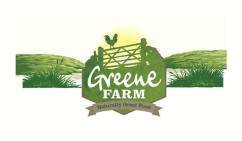
The resealable design means the meat products are kept fresh without the need of tinfoil and clingfilm to be used.
By keeping the meat sealed tight, it ensures the product remains fresh. Additionally, it extends the life of the food and helps tackle Britain’s problem with food waste.
“We are thrilled that our Reseal-it labelling system is a success for Greene Farm Foods,” said Angela Campbell from Macfarlane Labels. “The company identified a customer demand for their cooked meat products to have an easy-to-open pack with a reseal solution and early customer feedback has been encouraging. We look forward to working closely with Greene Farm Foods in the future on similar products.”
Macfarlane Labels assists leading brands across Europe, Canada and the US on products ranging from cheese to cookies.
Family-owned Greene Farm Foods roasts its meat at a state-of-the-art site in Ballygarvey, Northern Ireland using all-natural ingredients.
Owner of Greene Farm Foods, Kenneth Greene, commented: “We are delighted with the new Reseal-it label system on our range of cooked meat.
“Initial feedback has been positive and we understand it is helping consumers to manage their weekly purchases of cooked meats better. We are very pleased with the early results and we are now looking at the possibility of extending the use of Reseal-it to our other products.”
The Greene Farm range is available across Ireland and in some UK retailers
Deal is first time G’s has collaborated with another manufacturer to offer in-pack giveaway samples to strengthen super food message
Certain packs of G’s brand Fresh & Naked leaves will include trial chia shots in the first time the company has worked with another manufacturer through an in-pack giveaway.
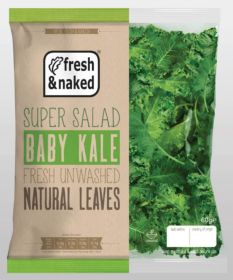
In partnership with Australian producer The Chia Co., chia samples will be included in 125g bags of baby spinach, and 60g bags of baby kale.
G’s said the move responds to shoppers using kale, spinach and chia seeds to make ‘superfood’ smoothies, and said that its customer profile matched well with that of The Chia Co.
“We found through various social media conversations with customers, that a lot of people were using the kale and spinach products in making their own smoothies; one of the interesting things that people were adding was chia seeds,” said Fresh & Naked brand principal, Anthony Gardiner.
“When we looked at our shopper profile data it was well matched to that of The Chia Co. so a linkup between the two brands felt like a really nice customer fit.”
Teresa Aprile, of The Chia Co, said the tie-up was a “fun way” to connect with health-conscious consumers who may not want to use the wholefood or free-from aisles.
“There are many similarities between our two brands: we farm sustainably, value our connection from our farms to our consumers and are passionate about the positive impact that our natural products can have on consumers’ health,” she said.
The campaign will be conveyed through advertising and social media to strengthen the “unwashed lasts longer” message with an extra nutrient boost through chia samples.
The Chia Co. products have been available in the UK since 2013, but the business has been established in its home market of Australia and the US for the past decade. Its chia is grown in the Kimberly region of western Australia.
Retailer’s pre-tax profit falls by almost half in H2 as it prepares to close 11 supermarkets and finalise sale of M Local
Morrisons will close 11 supermarkets and sell 140 of its convenience shops after reporting that like-for-like sales fell by 2.7% in the first half of this year.

The six month results to 2 August also saw total turnover fall by 5.1 to £8.1 billion while pre-tax profit fell by almost 50 per cent to £126 million.
M Local convenience shops, in the process of being sold, will be re-branded as ‘My Local’ with the 2,300 staff kept on. An extra 200 jobs are to be created by reopening 10 shops that are currently closed, the BBC reported. They are understood to have been bought by convenience veteran and former Spar man Mike Greene, backed by investment firm Greybull, according to the Telegraph.
Chief executive David Potts said he expects profit to be higher in the second half of the year, but stressed that recovery will be “a long journey”.
“The immediate priority is to deliver a better shopping trip to stabilise trading performance. Our six strategic priorities will then deliver improvement in the core supermarkets, where we have the greatest opportunity,” he said.
“It will be a long journey. We approach the challenge with energy, confidence and many strengths, particularly our strong balance sheet and cash flow, which enables investment in improving the customer shopping trip.”
Morrisons also named two new non-executive directors – Belinda Richards and Irwin Lee.
Chairman Andrew Higginson said: “David has very quickly formed a new team that combines the best of Morrisons home grown and external talent. I am also delighted that two new non-executive directors – Belinda Richards and Irwin Lee – have recently joined and strengthened the board. They bring a wealth of experience, which will prove invaluable to Morrisons.
“During the first half, the team has made good progress in starting the turnaround journey. While the management team need time to settle in, make the changes they see as important, and build trading momentum, I believe the team will deliver much improved profits and returns for shareholders.”
Wilson’s Country, based in County Armagh, sees the Republic as a ‘market offering extensive new business opportunities for us’
Northern Ireland’s leading potato packer is investing to grow in the Republic of Ireland’s foodservice sector.
Wilson’s Country, based at Craigavon in County Armagh, has installed state-of-the-art cooling technology at the heart of its production line.
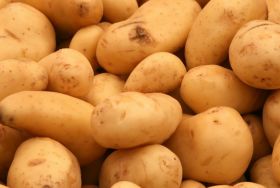
The new cooling equipment, central to a £1.5 million investment, enhances the company’s overall production process for the catering sector throughout Ireland, now providing 40 per cent of its business. While Wilson’s continues to provide skin-on potatoes preferred by shoppers in Ireland, the investment enables it to expand production of peeled products required by chefs.
Lewis Cunningham, managing director of Wilson’s Country, said: “We have made this investment in cooling technology to give our customers in foodservice a peeled product with a good shelf-life that will cook very well.
“We’ve also automated our peeling process and camera sorting to increase efficiency and maintain downward pressure on costs. The investment is designed to increase our ability to compete for new business in foodservice in the Republic.”
The peeled potatoes are produced at a temperature lower than five degrees centigrade to ensure a product that stays fresher and whiter longer for chefs.
The new equipment has also doubled the company’s capacity and provided potatoes of a more consistent quality. A new washing system also contributes to a fresher product.
The company, which employs 85 people and has over 80 growers, is aiming to achieve faster growth in its existing business in the Republic of Ireland in particular. It already supplies hotels, restaurants and public sector clients in Dublin, Cork, Galway and Limerick on a daily basis. Chefs there prefer the yellow flesh of Rooster potatoes.
“We see foodservice in the Republic as a market offering extensive new business opportunities for us,” Cunningham added.
“Chefs there are looking for robust potatoes that will stand up to manipulation in the kitchens and not discolour, slump or be gloopy, watery or waxy. Our investment in the latest production technology provides the type of consistently high quality potatoes they demand for their dishes.”
Wilson’s Country posted a yearly turnover (ending July 2014) of £14m, down from £17.6m, and saw a pre-tax profit of £1m.
Four NFU bosses also meet to discuss the situation, and call for a ‘widespread culture change’
Around 70 UK farmers joined the thousands taking part in the Copa Cogeca farming demo today (7 September)
As well as that, the four farming union presidents of NFU Cymru, NFU Scotland, NFU and Ulster Farmers Union held a separate meeting with farming ministers ahead of the extraordinary Agriculture Council, held in Belgium..

Over 6,000 farmers have turned out in a mass demonstration outside this meeting of EU farming ministers. The protest, organised by EU farming unions Copa and Cogeca, is aimed at drawing increased awareness to the dire state of the fresh produce market.
In a joint statement, the UK presidents said: “Right now, today, farmers are really struggling to pay their bills. This is having a huge impact not only on farming families, but for other businesses that rely on the farming sector.
“We have strongly urged our UK ministers to argue for more flexibility from the commission to allow the UK governments to pay farmers’ BPS and agri-environment monies at the very least on time and in full. This will help put money where it is needed most.”
Stephen James, NFU Cymru president, added: “There was agreement in the meeting that a widespread culture change is needed within the food supply chain to ensure that farmers see a fair share of risk and reward. The Westminster minister, Liz Truss, said this culture change will come about by building a consensus across the supply chain, and that she wanted government to show leadership by implementing the ambitious public procurement food policy across all government departments to see more local, high quality food procured.
“This needs to happen, and soon. We have asked for a clear timetable and agreed milestones to turn talk into action.
“The UK governments need to deliver on their promises; work together to achieve this culture change across the supply chain and to see real understanding of the cost of production to farmers.”.
Currency rate changes pushed up cost of fruit but improved group’s sales revenue, while input costs also fell
Irish tropical fresh produce company Fyffes has reported strong trading figures for the first half of the financial year, including an operating profit of €31.2m.
The result was 38.2% higher than during the same time last year, mainly due to the fact that fines owed to the European Commission by Fyffes’ German import joint venture Inter Weichert – for breaching competition rules governing the supply of bananas in the EU during the period 2000-2002 – were less than in the year-earlier period.
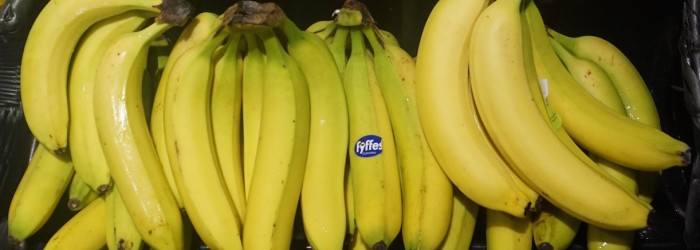
In addition, Fyffes managed to bring its savings back into the black, turning an €11.7m debt at the start of the year into a net cash reserve of €18.6m as of 30 June 2015.
“Fyffes is pleased to report a continuation of the strong growth in earnings achieved in recent years, with a 12.2% increase in adjusted [earnings per share] in the first half of the year,” commented group chairman David McCann.
The group also reconfirmed that it was targeting increased earnings (before interest and tax) for the year of between €44m and €50m. “This demonstrates the group’s ability to quickly adapt to prevailing market conditions given the significant adverse movement in exchange rates earlier in the year,” McCann added. “Fyffes continues to pursue increases in selling prices in all markets in this regard.”
Total revenue including joint ventures increased by 8.7 per cent in in the first half to €644.3m. Group revenue, meanwhile, which excludes Fyffes’ share of its joint ventures, amounted to €540.6m for the same period, up 10.3%.
Those increases were in part due to favourable changes in the value of the euro against both sterling and the US dollar when converting sales made in those currencies.
In addition, Fyffes delivered modest organic volume growth in the banana category, combined with some price increases in each product category. “Fyffes delivered a very satisfactory result in the banana category in the first half with operating profits €2m higher year on year,” the group said in its half-year report. “This was achieved notwithstanding the significant adverse change in exchange rates due to the strengthening late last year and early this year of the US dollar against sterling and particularly the euro.”
The fact that key the cost of running its banana business – including logistics, fuel and other import and operating costs in the UK – was cheaper in the first half of 2015 helped Fyffes significantly. Banana volumes, meanwhile, saw a modest increase in the period mainly thanks to rising demand from existing customers and price increases, it said.
Fyffes’ pineapple operations reportedly achieved a strong result in the first six months of the year with a €0.9m increase in profits, aided again by lower input costs and despite exchange rates exerting similar pressure. The group said its average selling prices were higher than in the first six months of 2014, in part due to a downturn in available volumes in the market.
Finally, its US melon business delivered a “satisfactory” result, with profits similar to what was described as a “very strong” result in the same period of 2014, “particularly given the prolonged period of poor winter weather experienced in the US earlier this year”. Weather issues in production regions apparently resulted in a slight fall in total volumes, contributing to an increase in production costs. “The group secured a modest level of price increases in response,” it stated.
Future success will depend on continued commitment to quality and innovation, say consortium directors
Italian apple group, Vog has marked the 70th anniversary of its foundation with a special press meeting and the launch of a new corporate logo.
Formed in Terlano, South Tyrol, amid the rubble of Europe just after the end of the Second World War, Vog has grown to become Europe’s largest single producer of apples and a major player on the international topfruit market, supplying markets in a large number of countries, both in Europe and beyond.
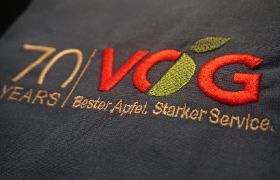
Vog president Georg Kössler described the anniversary as “a major milestone”. He also suggested that the group’s future success was assured provided it concentrated on product quality, joint marketing efforts and innovation across the board.
“Varietal innovation is the road we have to follow if we are to secure a good future for apple growing in South Tyrol,” he added.
His colleague Gerhard Dichgans, the consortium’s managing director, said the creation of a co-operative marketing system had played a major role in the development of agriculture in the South Tyrol region.
“In the future, I expect to see a continued change in the kind of apples being produced, with new varieties arriving and being sold through the new commercial structure we introduced a few years ago,” he commented.
“In terms of markets, Germany and Italy are no longer growing in terms of volume, so we have to chase new opportunities in other markets.”
The new logo features high-impact graphics and a simplified apple icon, which Vog’s PR manager Sabine Oberhollenzer said added a sense of modernity to the consortium’s traditional image while retaining the colour scheme and stylistic identity of the past.
The findings come from a study conducted among over 1,000 British children, aged six to ten years old
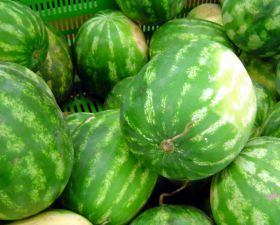
Six in ten of UK children have ‘no idea’ how the food they eat is grown, with one in ten (11%) reportedly not knowing that an apple grows on a tree.
The findings come from a study conducted among over 1,000 children, aged six to ten years old, and revealed confusion about the origins of strawberries, pineapples, grapes and watermelons.
The study follows a report by the BBC children’s news show, Newsround earlier this year which found that 52 in every 100 kids eats no veg, and 44 in every 100 children has no fruit on a daily basis.
The Fabulous Bakers conducted this latest piece of research to mark the launch of its new online film, which aims to educate and entertain children about how “fascinating and fabulous the natural world and its natural ingredients are.”
Percentage of UK children who don’t know how the fruit is grown: